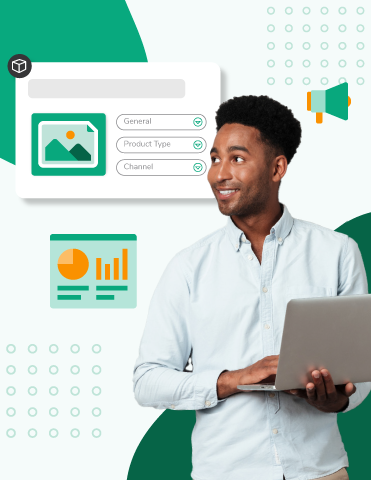Co-sourcing driving collaborative working in finance

Russell Gammon at Tax Systems explains how technology-led co-sourcing can unlock business potential
The advances in technology have fuelled a collaborative model of working – co-sourcing – that is fast gaining popularity across tax teams in all industries. In fact, a KPMG 2023 Chief Tax Officer Outlook survey revealed that the majority (83%) of businesses plan to use outsourcing, co-sourcing or managed services models in the next three years.
Co-sourcing allows companies’ in-house teams to work with external advisors to help alleviate workload and fill the gaps in their skills and expertise while staying in complete control of projects. This fast-trending business strategy can empower business leaders to identify new opportunities, and effectively collaborate across business functions. When combined with cloud technologies that enable teams to access and do the work from anywhere, it offers effective working and flexibility across different time zones and locations.
What is co-sourcing?
Co-sourcing is a hybrid partnership between a company and an external firm where the latter provides specialist tax services to the former on a shared or collaborative basis, with some remarkable business benefits. The aim is to improve the efficiency and effectiveness of the accounting function while leveraging the expertise and resources of the external firm.
It’s important to be clear on the unique differences between co-sourcing and outsourcing. With co-sourcing, businesses supplement their team with additional resources and have more control over their operations. This allows flexibility for both internal and external teams to work together in a way that suits them. Outsourcing involves transferring a part or even the entire operation to outside providers or suppliers, meaning that internal workers are often a less active part of the project.
Some key industries have changed their business models to embrace the advances in technology. The starkest example of this is the digitalisation of the tax industry, where more effective collaborative technology has moved many tax departments to a co-sourcing model. This helps them to effectively navigate the constantly evolving technology and tax landscape, whilst adhering to strict compliance regulations.
Key drivers for co-sourcing
A range of significant technological innovations and trends that have made the co-sourcing model more viable and cost-effective for business teams include:
- Cloud computing: Cloud-based solutions are a key enabler of co-sourcing, allowing both the accountancy adviser and the customer to access the same data and applications for effective collaboration in real time. 2023 is set to be a defining year for the UK tax industry, with departments planning to spend more on cloud-based services as opposed to desktop technology for the very first time.
- Automation and data analytics: The powerful combination of data analytics, with the automation of common manual tasks, means that organisations can elevate their tax processes using business insight to deliver more rapid and accurate reporting. Reducing the time to process large amounts of data and spotting trends that can identify opportunities, and help with planning and compliance.
- Security: With the sheer amount of sensitive data held by tax and finance teams in particular, alongside the increasing regulations like GDPR, data security has become critical. Utilising technology for data protection and access control, such as enabling multi-factor authentication, can help ensure that confidential information is protected and only accessible to authorised personnel.
The benefits of co-sourcing
Co-sourcing can offer a successful strategy to relieve the budgetary pressures of economic uncertainty, where the funds for recruitment and training are more at risk. The ability to take advantage of the consultant’s specific expertise, tools and resources is hugely favourable to businesses that lack certain skills. It also provides the flexibility of picking and choosing which tasks are outsourced and which are kept in-house.
One particular benefit of this approach is the speed with which this partnership-style working can be established. Projects can be planned and constructed quickly without the addition of new staff due to their flexibility and control. Remote working enables internal and external teams to share information and collaborate remotely, regardless of physical location and time zone. This has massive benefits for organisations that operate across multiple sites or for when it is not feasible for an advisor to be on site.
Co-sourcing allows a business to choose the best vendor to collaborate with for each dedicated project and it’s easy to scale the level of support up and down as necessary. This agility is ideal for organisations that are rapidly growing but want to invest on an as-needed basis.
As co-sourcing can be used across international time zones, this offers opportunities for businesses to have a more global ecosystem. For instance, co-sourcing can integrate disparate tax/finance teams in different countries along with specialist consultancies from each country using the same application. Or a UK team can partner with a specialist advisor from the other side of the world in a co-sourcing model – the opportunities are endless.
Being ready for change is critical in 2023
Those businesses adopting the co-sourcing model are putting themselves in a strong position to realise a range of important benefits – skills, speed and agility. With a co-sourcing model agreed upon, business teams and advisers alike will become nimbler to adapt to changing market needs, which is an essential strategy in our current volatile environment. And as the technologies supporting co-sourcing continue to evolve, offering more secure collaboration, 2023 looks set to see the rise of co-sourcing across all industries.
Russell Gammon is Chief Solutions Officer at Tax Systems
Main image courtesy of iStockPhoto.com

Business Reporter Team
Most Viewed
Winston House, 3rd Floor, Units 306-309, 2-4 Dollis Park, London, N3 1HF
23-29 Hendon Lane, London, N3 1RT
020 8349 4363
© 2024, Lyonsdown Limited. Business Reporter® is a registered trademark of Lyonsdown Ltd. VAT registration number: 830519543





